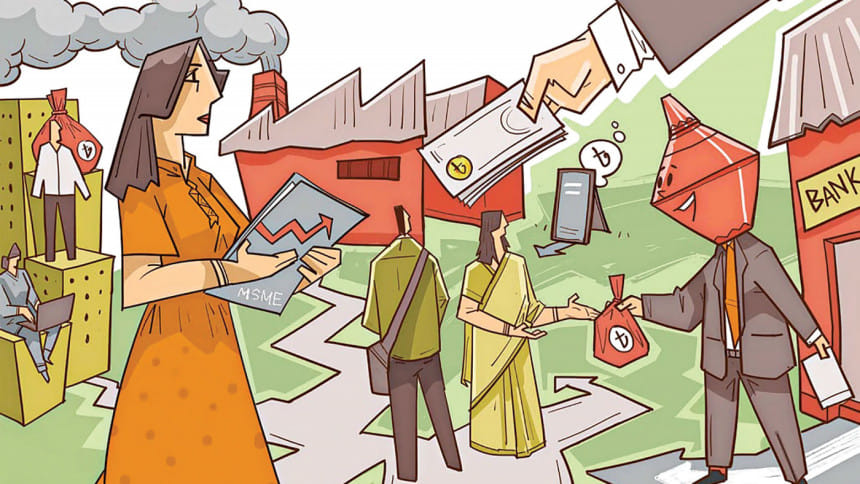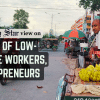Greening SMEs the need of the hour

Bangladesh may face significant barriers in exporting products to European nations in the future unless small and medium enterprises (SMEs), which provide intermediate goods and raw materials to large industries and brands, focus on greening their production units, experts said yesterday.
"Bangladesh will face difficulties exporting goods to developed countries within five to 10 years if factories in the country are not green because the EU will strictly follow the Ecodesign for Sustainable Products Regulation," said Md Abdur Rahim Khan, inspector general of the Department of Inspection for Factories and Establishments (DIFE).
He was speaking at a seminar, titled "Green SMEs for sustainable economic development in Bangladesh", organised by the SME Foundation at the Bangabandhu International Conference Center yesterday.
According to Khan, the DIFE does not only observe environmental issues during inspections, but also assesses the sustainability of factories.
Mirza Nurul Goni Shovan, a member of the SME Foundation's board, added that exporters will have to mention the source of raw materials and intermediate goods on product labels in order to export to developed countries after Bangladesh graduates from least developed country (LDC) status in 2026.
To protect their business interests, large industries must bear the responsibility of greening SMEs by creating awareness, he said.
However, he added that local SMEs are not financially capable of greening their production units at this moment. So, he emphasised the need to incentivise green SMEs through tax benefits.
Ismat Zarin Khan, another member of the SME Foundation's board, said greening SMEs is the need of the hour.
She urged entrepreneurs to place their problems to the SME Foundation so that it can address them.
Farina Ahmed, secretary of the Ministry of Environment, Forest and Climate Change, said that plastic products have breached every sector, which raises health concerns.
"If we do not correct ourselves or protest the pollution of the environment, then the next generation will suffer. We need to protect the environment and nature," she added.
Md Zillur Rahman, a professor and chairman of the Department of Disaster Science and Climate Resilience at the University of Dhaka, emphasised the use of renewable energy instead of fossil fuels, which cause pollution.
He further suggested adopting energy-efficient technologies to reduce air pollution.
And although he conceded that such measures require a large investment, he added that there was no alternative to mitigate the impacts of climate change.
In his keynote, Suborna Barua, a professor of international business at the University of Dhaka, said transitioning to green SMEs would ensure sustainability by minimising waste and pollution while promoting the principles of a circular economy.
"There is a prospect to access untapped markets, enhance productivity, and gain cost advantages and competitiveness in international business by making SMEs green," he said.
He added that customers in developed nations prefer environment-friendly and recyclable products, but there are financial and non-financial constraints to implementing green concepts in SMEs.
Salahuddin Mahmud, managing director (additional charge) of the SME Foundation, presided over the seminar.

 For all latest news, follow The Daily Star's Google News channel.
For all latest news, follow The Daily Star's Google News channel. 





Comments